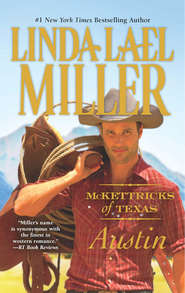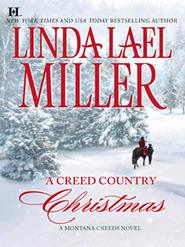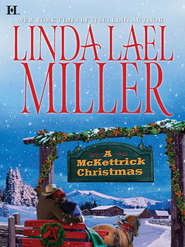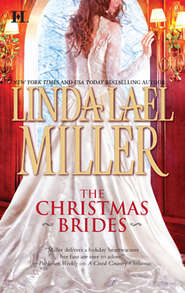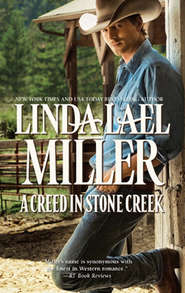По всем вопросам обращайтесь на: info@litportal.ru
(©) 2003-2024.
✖
There and Now
Автор
Год написания книги
2018
Настройки чтения
Размер шрифта
Высота строк
Поля
Elisabeth swallowed. “N-no,” she allowed, extending one toe to test the floor. Even now, with this image in front of her, complete in every detail, her five senses were telling her that if she stepped into the room, she would plummet onto the sun-porch roof and break numerous bones.
The little girl dragged the flannel sleeve of her nightgown across her face and sniffled again. “Papa’s probably in the barn. The animals get scared when there’s a storm.”
Elisabeth hugged herself, squeezed her eyes tightly shut and stepped over the threshold, fully prepared for a plunge. Instead, she felt a smooth wooden floor beneath her feet. It seemed to her that “Papa” might have been more concerned about a frightened daughter than frightened animals, but then, since she had to be dreaming the entire episode, that point was purely academic.
“You’re the lady, aren’t you?” the child asked, drawing her knees up under the covers and wrapping small arms around them. “The one who rattled the doorknob and called out.”
This isn’t happening, Elisabeth thought, running damp palms down her thighs. I’m having an out-of-body experience or something. “Y-yes,” she stammered after a long pause. “I guess that was me.”
“I’m Trista,” the girl announced. Her hair was a dark, rich color, her eyes a stormy gray. She settled comfortably against her pillows, folding her arms.
Trista. The doctor’s daughter, the child who died horribly in a raging house fire some seventy years before Elisabeth was even born. “Oh, my God,” she whispered again.
“You keep saying that,” Trista remarked, sounding a little critical. “It’s not truly proper to take the Lord’s name in vain, you know.”
Elisabeth swallowed hard. “I k-know. I’m sorry.”
“It would be perfectly all right to give me yours, however.”
“What?”
“Your name, goose,” Trista said good-naturedly.
“Elisabeth. Elisabeth McCartney—no relation to the Beatle.” As she spoke, Elisabeth was taking in the frilly chintz curtains at the window, the tiny shingles on the roof of the dollhouse.
Trista wrinkled her nose. “Why would you be related to a bug?”
Elisabeth would have laughed if she hadn’t been so busy questioning her sanity. I refuse to have a breakdown over you, Ian McCartney, she vowed silently. I didn’t love you that much. “Never mind. It’s just that there’s somebody famous who has the same last name as I do.”
Trista smoothed the colorful patchwork quilt that covered her. “Which are you?” she demanded bluntly. “My guardian angel, or just a regular ghost?”
Now Elisabeth did laugh. “Is there such a thing as a ‘regular ghost’?” she asked, venturing farther into the room and sitting down on the end of Trista’s bed. At the moment, she didn’t trust her knees to hold her up. “I’m neither one of those things, Trista. You’re looking at an ordinary, flesh-and-blood woman.”
Trista assessed Elisabeth’s football jersey with a puzzled expression. “Is that your nightdress? I’ve never seen one quite like it.”
“Yes, this is my—nightdress.” Elisabeth felt light-headed and wondered if she would wake up with her face in the rain gutter that lined the sun-porch roof. She ran one hand over the high-quality workmanship of the quilt. If this was an hallucination, she reflected, it was a remarkably vivid one. “Go to sleep now, Trista. I’m sure it’s very late.”
Thunder shook the room and Trista shivered visibly. “I won’t be able to sleep unless I get some hot milk,” she said, watching Elisabeth with wide, hopeful eyes.
Elisabeth fought an urge to enfold the child in her arms, to beg her to run away from this strange house and never, ever return. She stood, the fingers of her right hand fidgeting with the necklace. “I’ll go and make some for you.” She started back toward the door, but Trista stopped her.
“It’s that way, Elisabeth,” she said, pointing toward the inner door. “I have my own special stairway.”
“This is getting weirder and weirder,” Elisabeth muttered, careful not to stub her toe on the massive dollhouse as she crossed to the other door and opened it. “Let’s see just how far this delusion goes,” she added, finding herself at the top of a rear stairway. Her heart pounded so hard, she thought she’d faint as she made her way carefully down to the lower floor.
She wouldn’t have recognized the kitchen, it was so much bigger than the one she knew. A single kerosene lantern burned in the center of the oak table, sending up a quivering trail of sooty smoke. There were built-in cabinets and bins along one wall, and the refrigerator and the stove were gone. In their places were an old-fashioned wooden icebox and an enormous iron-and-chrome monster designed to burn wood. The only thing that looked familiar was the back stairway leading into the main hallway upstairs.
Elisabeth stood in the middle of the floor, holding herself together by sheer force of will. “This is a dream, Beth,” she told herself aloud, grasping the brass latch on the door of the icebox and giving it a cautious wrench. “Relax. This is only a dream.”
The door opened and she bent, squinting, to peer inside. Fortunately, the milk was at the front, in a heavy crockery pitcher.
Elisabeth took the pitcher out of the icebox, closed the door with a distracted motion of one heel and scanned the dimly lit room again. “Wait till you tell Rue about this,” she chattered on, mostly in an effort to comfort herself. “She’ll want to do a documentary about you. You’ll make the cover of the Enquirer, and tabloid TV will have a heyday—”
“Who the hell are you?”
The question came from behind her, blown in on a wet-and-frigid wind. Elisabeth whirled, still clutching the pitcher of cream-streaked milk to her bosom, and stared into the furious gray eyes of a man she had never seen before.
A strange sensation of being wrenched toward him spiritually compounded Elisabeth’s shock.
He was tall, close to six feet, with rain-dampened dark hair and shoulders that strained the fabric of his suitcoat. He wore a vest with a gold watch chain dangling from one pocket, and his odd, stiff collar was open.
For some confounding reason, Elisabeth found herself wanting to touch him—tenderly at first, and then with the sweet, dizzying fury of passion.
She gave herself an inward shake. “This is really authentic,” Elisabeth said. “I hope I’ll be able to remember it all.”
The stranger approached and took the endangered pitcher from Elisabeth’s hands, setting it aside on the table. His eyes raked her figure, taking in every fiber of the long football jersey that served as her favorite nightgown, leaving gentle fire in their wake.
“I asked you a question,” he snapped. “Who the devil are you?”
Elisabeth gave an hysterical little burst of laughter. The guy was a spirit—or more likely a delusion—and she felt a staggering attraction to him. She must be ‘round the bend. “Who I am isn’t the question at all,” she answered intractably. “The question is, are you a ghost or am I a ghost?” She paused and spread her hands, reasoning that there was no sense in fighting the dream. “I mean, who ya gonna call?”
The man standing before her—Elisabeth could only assume he was the “Papa” Trista had been screaming for—puckered his brow in consternation. Then he felt her forehead with the backs of four cool fingers.
His touch heated Elisabeth’s skin and sent a new shock splintering through her, and Elisabeth fairly leapt backward. Hoping it would carry her home to the waking world, like some talisman, she brought the pendant from beneath her shirt and traced its outline with her fingers.
“What is your name?” the man repeated patiently, as though speaking to an imbecile.
Elisabeth resisted an impulse to make a suitable noise with a finger and her lower lip and smiled instead. She had a drunken feeling, but she assured herself that she was bound to wake up any minute now. “Elisabeth McCartney. What’s yours?”
“Dr. Jonathan Fortner,” was the pensive answer. His steely eyes dropped to the pendant she was fiddling with and went wide. In the next instant, before Elisabeth had had a chance even to brace herself, he’d gripped the necklace and ripped it from her throat. “Where did you get this?” he demanded, his voice a terrifying rasp.
Elisabeth stepped back again. Dream or no dream, she’d felt the pull of the chain against her nape, and she was afraid of the suppressed violence she sensed in this man. “It—it belonged to my aunt—and now it belongs to my cousin and me.” She gathered every shred of courage she possessed just to keep from cowering before this man. “If you’ll just give it back, please….”
“You’re a liar,” Dr. Fortner spat out, dropping the necklace into the pocket of his coat. “This pendant was my wife’s—it’s been in her family for generations.”
Elisabeth wet her lips with the tip of her tongue. This whole experience, whatever it was, was getting totally out of hand. “Perhaps it belonged to your—your wife at one time,” she managed nervously, “but it’s mine now. Mine and my cousin’s.” She held out one palm. “I want it back.”
He looked at her hand as though he might spit in it, then pressed her into a chair. Her knees were like jelly, and she couldn’t be sure whether this was caused by her situation or the primitive, elemental tug she felt toward this man.
“Papa?” Trista called from upstairs.
Dr. Fortner’s lethal glance followed the sound. He stood stock still for a long moment, then shrugged out of his coat and hung it from a peg beside the door. “Everything is all right,” he called back. “Go to sleep.”
Elisabeth swallowed the growing lump in her throat and started to rise from the chair. At one quelling glance from Dr. Fortner, however, she thought better of it and sank back to her seat. She watched with rounded eyes as her reluctant host sat down across from her.
“Who are you?” he asked sternly.
He was a remarkable man, ruggedly handsome and yet polished, in a Victorian sort of way. The sort Elisabeth had fantasized about since puberty.






